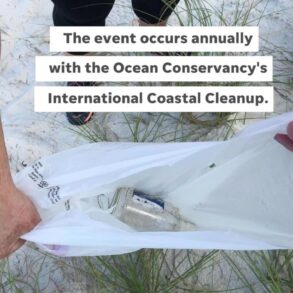
Sometimes I think that my high school self would be severely disappointed with where I have decided to take my career.
As someone who saw the world primarily in black and white and was deeply entrenched in the dark academia aesthetic, the idea of going corporate, for a tech company no less, would have horrified her. She lurks in the back of my mind in her thrifted trousers and yells “sell out” at me every time I apply for an industry-centered job.
You couldn’t kill my love of literature and academics if you tried (and some classes I’ve taken at UW certainly gave it a shot) but I have broadened my horizons significantly over the past few years.
This past summer I took an internship with a tech company where my primary role was to help revitalize their website content, both written and visual. Initially, I was nervous because while I know how to write (obviously), I had never done anything in the branding sphere nor did I know anything about the technology I was writing about.
Not to sound too much like a generic cover letter, but I was shocked by how well I was able to slide into this role. In many ways, the way I approached technical jargon and marketing writing I was tasked with producing was very similar to how it felt in an English class when I have to decipher a particularly difficult piece of poetry.
The synthesis and analysis skills I only had a vague notion of developing over the course of my college years were suddenly front and center and, to my surprise, quite good.
With the rise of AI and just a general disdain for doing your own thinking, having the ability to communicate your thoughts, synthesize and process information, and even think critically about the world around you is incredibly valuable.
Kathleen Escarcha, a graduate student pursuing her doctorate in English, graduated with a dual degree in business and English and held a job at an education research firm for several years. In her position, Escarcha found that she used the skills from her English degree way more than the ones she gained from her business degree.
“I didn’t realize until after I left college that writing is everywhere, and every place needs writing,” Escarcha said. “Even when I was working in the corporate world, it was middle-aged people who really struggled to write. These are foundational skills that are going to be important no matter what you do.”
I am not saying that all STEM-oriented people are bad at writing or communicating, but I will say that the worst writing and communication I’ve ever encountered have been from people in those fields. Who’s to say if that is correlation or causation, but the fact remains that there is a distinct and dire need for people with the baseline skills that a liberal arts education develops.
Frederick Lu is a third-year student studying both finance and English. Like many liberal arts majors, Lu is hoping to attend graduate school right after undergrad. However, rather than going into something absolutely related to either of his degrees, Lu is in grad school for public policy, a field he has found both fulfilling and well suited for the skills he’s gained throughout his undergrad degrees.
“I’ve definitely been able to be more clear and explain myself more thoroughly,” Lu said. “A lot of that has to do with simplifying what we say. I used to think of writing as finding the best words, but really it’s about what’s the best way to tell this other person how you feel and think and give them a transparent window into what your mind is thinking.”
It often feels like the skills we liberal arts majors actually develop are so abstract, and while this is supposed to be our forte, it can be hard to find the words to describe what we actually do to future employers. Even once you unlock the skill of translating what you can do into employer-friendly language, this doesn’t mean you’re suddenly sending out a beacon of hirable light to possible employers.
Briana Randall, executive director of the Career & Internship Center, describes that what employers are looking for is shifting in a way that benefits majors that focus on developing broader skills rather than specific content.
“I think there is a growing awareness from employers that in order to get the talent that would be successful they need to look at skills and experiences over the perfect GPA and the perfect major,” Randall said. “What we encourage students to do is to build the skills, experiences and relationships that are going to help them after graduation.”
Liberal arts majors are usually pegged as the more woo-woo open-minded group of students. Yet, it’s been difficult for many of us to grapple with the uncertainty of our future careers, not because there are no opportunities for us but because there are almost too many.
“I do want students to know that there is hope,” Randall said. “They just have to figure out how to tell their stories a little differently and maybe to different people and the targets they have in mind they maybe need to broaden.”
Even with our widened view on what careers and industries we could pursue, how do we sort through what we actually want to do? I have to be honest, I don’t really know.
As nice as it is to know there is hope for us in the job market, I still feel lost.
While moving towards a more industry-focused sphere does not mean you’re selling out as a liberal arts major, there still isn’t anything wrong with pursuing more traditional career trajectories like academia and research. There will always be a need for scholars who make sure the world as we know it stays on its axis.
While I do think liberal arts majors have the long-term advantage of not having a rigid and set career trajectory before them, it presents a whole new set of challenges of finding fulfillment. Still, if there’s a group of majors that know how to use our skills to overthink until we discover the path that is meant for us, my money is on us.
Reach writer Alexa Meyer at opinion@dailyuw.com. X: @alexa-lindsay56
Like what you’re reading? Support high-quality student journalism by donating here.
This post was originally published on this site be sure to check out more of their content





